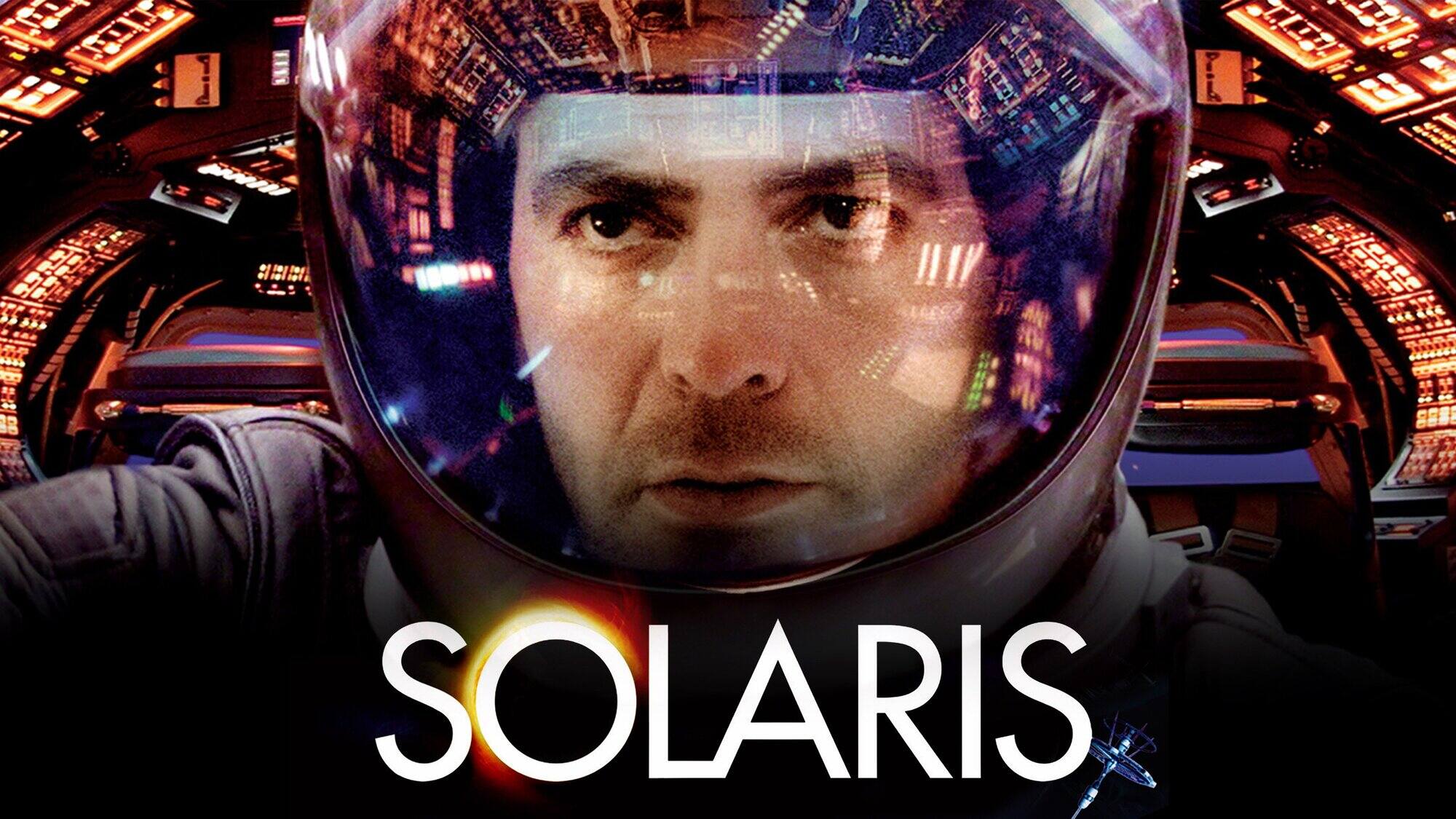
Solaris is a mesmerizing science fiction movie that has captivated audiences since its release. Directed by Andrei Tarkovsky and released in 1972, Solaris is a masterful exploration of human emotions, existentialism, and the mysteries of the universe. The film is based on the novel of the same name by Stanis?aw Lem and tells the story of a psychologist, Kris Kelvin, who is sent to a space station orbiting the planet Solaris to investigate some mysterious occurrences. As the plot unfolds, Solaris challenges viewers with complex themes and philosophical questions about love, identity, and the nature of reality. With its stunning visuals, thought-provoking narrative, and brilliant performances, Solaris continues to be regarded as a landmark in the science fiction genre.
Key Takeaways:
- Solaris is a thought-provoking science fiction film that explores deep philosophical questions about memory, consciousness, and the nature of humanity. It challenges viewers to ponder the limits of human understanding and the relationship between mind and reality.
- Andrei Tarkovsky’s Solaris is a visually stunning and emotionally immersive movie that has left a lasting impact on the science fiction genre. Its haunting ambiance, complex characters, and ambiguous storytelling continue to captivate audiences worldwide.
Solaris is a science fiction film directed by Andrei Tarkovsky.
Solaris is a classic film that was released in It is based on the novel of the same name written by Stanislaw Lem.
The movie is set in the future on a space station orbiting the planet Solaris.
The storyline revolves around Kris Kelvin, a psychologist who travels to the space station to investigate strange occurrences.
The film explores themes of memory, consciousness, and the nature of humanity.
Solaris raises philosophical questions about the limits of human understanding and the relationship between mind and reality.
Solaris won the Grand Prix Special Jury Prize at the 1972 Cannes Film Festival.
The film received critical acclaim for its thought-provoking narrative and stunning visuals.
Solaris was remade in 2002 by director Steven Soderbergh, starring George Clooney.
The remake gained mixed reviews but still attracted attention due to its stellar cast.
Andrei Tarkovsky’s version of Solaris is known for its deliberate pacing and long takes.
The director wanted to create a sense of introspection and contemplation in the audience.
The soundtrack for Solaris was composed by Eduard Artemyev.
The haunting and atmospheric music adds to the film’s eerie ambiance.
Solaris was shot in a desolate landscape, which enhances the feeling of isolation of the characters.
The bleak setting reflects the emotional state of the protagonist.
The film’s cinematography emphasizes the contrast between the sterile space station and the mysterious planet Solaris.
The use of color and lighting creates a distinct visual style.
Solaris explores the concept of the “Solaristic phenomena,” which are unexplained events occurring on the planet.
The mysterious occurrences challenge the crew’s understanding of reality.
The character of Hari, played by Natalya Bondarchuk, is a significant part of the film’s storyline.
Hari is a manifestation of Kelvin’s memories and emotions.
Solaris is often compared to other science fiction films like 2001: A Space Odyssey and Blade Runner.
All three movies delve into deep philosophical questions and push the boundaries of the genre.
Tarkovsky’s version of Solaris received criticism from Soviet authorities for its abstract approach to storytelling.
They thought it was too contemplative and lacked clear resolution.
Solaris has been praised for its realistic portrayal of life in space.
The film captures the mundane and mundane aspects of daily life on a space station.
Solaris has been described as a “thinking person’s sci-fi film.”
The movie encourages intellectual engagement and introspection.
Tarkovsky’s Solaris was selected for preservation in the United States National Film Registry.
It is recognized for its cultural, historical, and aesthetic significance.
The title “Solaris” comes from the name of the planet where the movie takes place.
The planet Solaris is a mysterious and enigmatic entity in the film.
Solaris was Tarkovsky’s first foray into science fiction.
He had previously been known for his poetic and introspective dramas.
Solaris explores the complexities of human emotions and relationships.
The film delves into themes of love, loss, and the extent to which we can truly understand one another.
The production of Solaris was plagued with various challenges, including budget constraints and technical difficulties.
However, these obstacles did not diminish the film’s artistic achievements.
Solaris was released during a time of political and social change in the Soviet Union.
The film reflects the era’s intellectual debates and concerns.
Solaris has a runtime of approximately 166 minutes.
The film’s length allows for a deep exploration of its philosophical themes.
Solaris has influenced numerous filmmakers and is considered a seminal work in the science fiction genre.
Its impact can be seen in films that explore similar themes and storytelling approaches.
Solaris received an Academy Award nomination for Best Foreign Language Film.
Its international recognition further solidified its status as a cinematic masterpiece.
The original Russian version of Solaris is spoken in Russian, while the remake is in English.
The choice of language adds to the authenticity and cultural context of each version.
Solaris challenges traditional narrative structure and blurs the boundaries between dreams, memories, and reality.
The film intentionally confuses the audience, forcing them to question what is real.
Solaris has a devoted fan base and has sparked lively discussions among film enthusiasts.
The film’s ambiguity and thought-provoking nature make it ripe for interpretation.
Solaris delves into the psychological and emotional toll of space exploration.
The psychological challenges faced by the crew add depth and complexity to the story.
Solaris raises questions about the significance of individual identity and the nature of human existence.
The crew’s interaction with the planet Solaris challenges their understanding of self.
Solaris features stunning visual effects that are both mesmerizing and disorienting.
The film’s visuals add to its atmospheric and otherworldly quality.
Solaris has been praised for its refusal to provide easy answers or resolutions.
The film embraces ambiguity and leaves room for interpretation.
The character of Kris Kelvin undergoes a transformative journey throughout the course of the film.
His experiences on the space station challenge his beliefs and understanding of reality.
Solaris has been compared to the works of renowned philosopher Friedrich Nietzsche.
The film explores similar themes of perception, truth, and the limits of knowledge.
The production design of Solaris is minimalistic yet effective.
The simple sets allow the focus to remain on the characters and their emotional journeys.
Solaris received mixed reviews upon its initial release in the Soviet Union.
However, it has since gained cult status and is now considered a masterpiece of cinema.
Solaris explores the concept of memory and how it shapes our understanding of reality.
The planet Solaris has the ability to materialize people’s memories, blurring the boundaries between past and present.
Solaris has been praised for its atmospheric sound design, which adds to the overall sense of unease.
The film’s soundscapes create an immersive and haunting experience.
Solaris showcases Tarkovsky’s trademark use of long takes, allowing the audience to deeply engage with the characters and their emotions.
These long sequences create a sense of intimacy and immersion.
Solaris has been analyzed for its commentary on the limitations of science and the human quest for knowledge.
The film raises questions about the dangers of seeking answers beyond our comprehension.
Solaris was a commercial success in the Soviet Union, despite the initial mixed reception from critics.
It resonated with audiences who appreciated its intellectual and emotional depth.
Solaris has been described as a meditation on loneliness and the human longing for connection.
The isolation faced by the characters explores the universal need for companionship.
Solaris features standout performances by the cast, particularly Natalya Bondarchuk in the role of Hari.
Bondarchuk brings depth and vulnerability to the character, making her a memorable presence onscreen.
Solaris has been studied in film schools and is considered a textbook example of visual storytelling.
The film’s use of imagery and symbolism adds layers of meaning to the narrative.
Solaris raises moral and ethical questions regarding the treatment and understanding of extraterrestrial life.
The film challenges the notion that humans can fully comprehend or control beings from other worlds.
Solaris has been described as a “psychological thriller in space.”
The film keeps viewers on edge as they unravel the mysteries of the space station and the planet Solaris.
Solaris has been praised for its haunting ending, which leaves audiences with more questions than answers.
The enigmatic conclusion adds to the film’s lasting impact and leaves viewers with a sense of wonder.
Solaris has been hailed as one of the greatest science fiction films of all time.
It continues to inspire and captivate audiences with its profound exploration of the human condition.
Solaris showcases the mastery of Andrei Tarkovsky as a director and his unique approach to storytelling.
The film stands as a testament to his artistic vision and continues to resonate with audiences across the globe.
Conclusion
In conclusion, “Solaris” is a thought-provoking and visually stunning movie that delves into the complexities of human relationships and the mysteries of outer space. With its compelling storyline, exquisite cinematography, and exceptional performances, it has earned its place as a must-watch film for sci-fi enthusiasts and movie lovers alike. The movie’s philosophical themes and intense emotional exploration make it a unique and unforgettable viewing experience. “Solaris” challenges our notions of reality, love, and identity, leaving us with lingering questions and a desire to reflect on our own existence. Whether you’re a fan of science fiction or simply appreciate thought-provoking cinema, “Solaris” is a masterpiece that should not be missed.
FAQs
1. When was “Solaris” released?
“Solaris” was released on November 27, 2002.
2. Is “Solaris” based on a book?
Yes, “Solaris” is based on the 1961 science fiction novel of the same name written by Stanislaw Lem.
3. Who directed “Solaris”?
The movie was directed by Steven Soderbergh.
4. Who starred in “Solaris”?
The film stars George Clooney, Natascha McElhone, and Viola Davis.
5. What is the runtime of “Solaris”?
The runtime of “Solaris” is approximately 99 minutes.
6. What genre does “Solaris” belong to?
Solaris” is a science fiction drama film.
7. Is “Solaris” a remake?
Yes, “Solaris” is a remake of the 1972 Russian film of the same name directed by Andrei Tarkovsky.
8. Did “Solaris” receive any awards?
Yes, “Solaris” won the Grand Jury Prize at the 2002 Cannes Film Festival.
9. What is the main theme of “Solaris”?
The main theme of “Solaris” is the exploration of human consciousness and the nature of reality.
10. Where was “Solaris” filmed?
The movie was primarily filmed in California, USA.
Was this page helpful?
Our commitment to delivering trustworthy and engaging content is at the heart of what we do. Each fact on our site is contributed by real users like you, bringing a wealth of diverse insights and information. To ensure the highest standards of accuracy and reliability, our dedicated editors meticulously review each submission. This process guarantees that the facts we share are not only fascinating but also credible. Trust in our commitment to quality and authenticity as you explore and learn with us.


